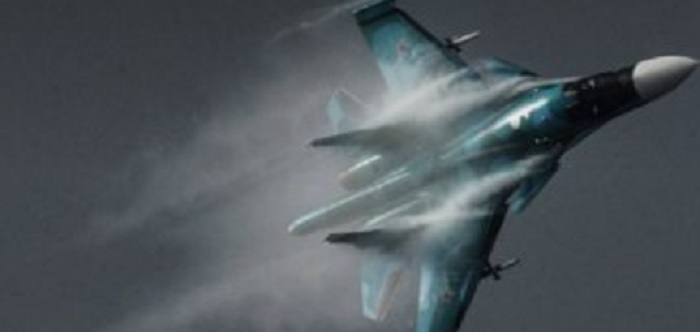
The war in Nagorno-Karabakh continues, the loss of manpower and military equipment of Armenia and Azerbaijan is increasing, and Syrian mercenaries continue to head to the front line, recruited by Turks and Azeris to take part in the fighting.
According to information provided by the news agency Avia.pro, the Russian front-line bomber Su-34 struck powerful air strikes on a column of Syrian mercenaries in the area of Syrian city of Magara, Al-Hasakah. According to the information provided, the air strikes of the Russian Air Force killed two or three dozen Syrian mercenaries as they boarded the vehicles before leaving.
We remind you that only 24 hours ago, the Russian Air Force struck a similar air strike again in the same city, managing to strike the assembly points of recruiters recruiting Syrian mercenaries.
At the same time, in an interview with an Iranian newspaper, Armenian Prime Minister Nikol Pashinyan criticized the actions of the countries in the region, saying that the presence and participation of Syrian mercenaries has been confirmed internationally, while the countries are not actively involved in attempts to stop transportation. of mercenaries on the front line. According to the Armenian Prime Minister, these mercenaries are transported through the territory of Turkey.
Nagorno-Karabakh conflict
Azerbaijan and Armenia have been in conflict over Nagorno-Karabakh since February 1988, when the Nagorno-Karabakh Autonomous Region announced its withdrawal from the Azerbaijan SSR.
During the armed conflict in 1992-1994, the Azerbaijani side lost control of Nagorno-Karabakh and the seven areas adjacent to it. Since 1992, negotiations have been conducted within the framework of the OSCE Minsk Group on a peaceful settlement of the conflict. The group is led by co-chairs – Russia, USA and France.
In 1994, Azerbaijan, Armenia and the unrecognized Nagorno-Karabakh Republic, through the mediation of Russia, signed the Bishkek Armistice Protocol. At the same time, military operations did not stop there, which periodically renewed. The most significant exacerbation of the conflict was the four-day war of 2016. Then hundreds of soldiers on both sides became victims.
Russian Foreign Minister Sergei Lavrov, during a meeting with the President of Azerbaijan last year, called for a rhetoric that would go against the fundamental principles endorsed by both sides and enshrined in the UN Charter and the Helsinki Final Act when resolving the situation around Nagorno-Karabakh. At the same time, the head of the Russian Foreign Ministry admitted that much more needs to be done to achieve a long-term political settlement.
The situation in Nagorno-Karabakh escalated on September 27, active clashes are taking place in the disputed territory. Martial law was introduced in Azerbaijan and Armenia, and mobilization was announced. Both sides reported killed and wounded, including civilians. In Baku, they announced the control of several Karabakh villages and strategic heights. Yerevan also reports about the shelling of the territory of Armenia.
War in Syria
In February, Turkey lost at least 62 troops killed in Syria, nearly 100 soldiers were wounded, dozens of Turkish armored vehicles were destroyed and more than ten drones, including drone, were shot down. Washington has repeatedly accused Moscow of involvement in the deaths of Turkish soldiers, Russia rejects these allegations.
In early March, the presidents of Russia and Turkey, Vladimir Putin and Recep Tayyip Erdogan, concluded an agreement according to which a ceasefire came into force in the Idlib de-escalation zone. Syrian President Bashar al-Assad later said that if the US and Turkish military did not leave the country, Damascus would be able to use force.
The reason for the Russian-Turkish negotiations was a sharp aggravation of the situation in Idlib, where in January a large-scale offensive by the Syrian army against the positions of the armed opposition and terrorists began.
Government forces recaptured nearly half of the Idlib de-escalation zone and left behind a number of Turkish observation posts. After that, Ankara sharply increased its military contingent in the region and launched the operation “Spring Shield” to push the Syrian troops. Turkey is also supported by militants loyal to it.
